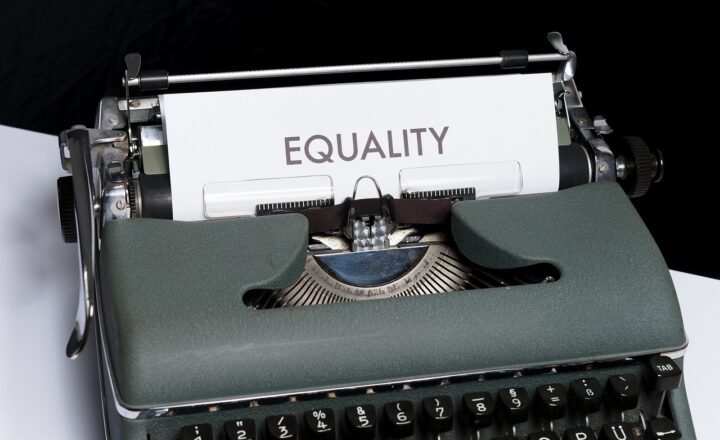The Role of International Organizations in Shaping Modern Political Agendas
November 16, 2024

International organizations have become pivotal players in the global political arena, significantly influencing the political agendas of nations and contributing to international cooperation and policy formulation. This article delves into how these entities, ranging from the United Nations (UN) to regional bodies like the European Union (EU), shape modern political agendas across various dimensions.
1. Understanding International Organizations
International organizations are entities created by multiple countries that work together to address issues that transcend national borders. They facilitate cooperation on challenges such as security, trade, environment, and humanitarian aid. Notable examples include:
- United Nations (UN): Established in 1945, the UN aims to promote peace, security, and cooperation among nations.
- European Union (EU): A political and economic union of member states in Europe that aims to ensure free movement of people, goods, and services.
- World Health Organization (WHO): Focuses on global public health issues and guides health policies.
- North Atlantic Treaty Organization (NATO): A military alliance primarily aimed at mutual defense among member states.
These organizations help establish rules, norms, and frameworks that member states are encouraged to adhere to, which contributes to the formation of modern political agendas.
2. The Influence of International Organizations on National Policies
International organizations impact national politics in several ways:
2.1 Agenda Setting
International organizations often identify and prioritize global issues that require collective action. For instance, the UN’s Sustainable Development Goals (SDGs) provide a framework for countries to align their national agendas with global priorities, focusing on issues such as poverty alleviation, education, and climate change.
2.2 Policy Formulation
Organizations like the World Trade Organization (WTO) and the International Monetary Fund (IMF) provide guidelines and recommendations for countries on economic policy, trade practices, and financial stability. Governments often adopt these recommendations to gain access to financial support or to improve their standing in international relations.
2.3 Norm Setting
International organizations establish norms that countries feel pressured to adopt. For example, treaties negotiated under the UN Framework Convention on Climate Change (UNFCCC) compel nations to create and implement policies aimed at reducing greenhouse gas emissions as part of global climate commitments.
3. Case Studies of Influence
Here are some case studies that illustrate how international organizations have shaped political agendas:
3.1 The Role of the UN in Global Peacekeeping
The UN has played a vital role in mediating conflicts and establishing peacekeeping missions around the world. By intervening in civil wars and post-conflict reconstruction efforts, the UN helps set the political agenda for long-term stability and governance in affected regions. An example includes peacekeeping efforts in the Democratic Republic of the Congo (DRC) aimed at stabilizing the region and establishing effective governance.
3.2 WHO’s Response to Health Crises
The COVID-19 pandemic highlighted the WHO’s influence in shaping global health policy. The organization established guidelines, coordinated vaccine distribution, and emphasized the importance of international collaboration in public health, prompting countries to adjust their national health agendas accordingly.
3.3 The European Union’s Regulatory Power
The EU has demonstrated significant power in setting common regulatory standards that member states must adhere to. The General Data Protection Regulation (GDPR) is a prime example, influencing data privacy regulations worldwide as non-EU companies also seek to comply with EU standards for business operations.
4. Challenges Faced by International Organizations
Despite their influence, international organizations face several challenges in shaping political agendas:
4.1 Sovereignty Issues
Many countries resist ceding authority to international organizations, citing national sovereignty. This resistance can limit the effectiveness of global agreements. For instance, during climate negotiations, developing countries often argue that they should not bear the same responsibilities as developed nations due to historical emissions.
4.2 Financial Constraints
International organizations often struggle with funding issues. A lack of financial resources can hamper initiatives, as seen with the UN’s peacekeeping missions that often rely on voluntary contributions from member states.
5. The Future of International Organizations in Politics
Looking forward, the role of international organizations will likely evolve in response to new global challenges, such as climate change, cybersecurity threats, and geopolitical tensions. To remain relevant, these organizations must adapt, ensuring they can effectively mediate conflicts and promote collective action in an increasingly interconnected world.
Current trends show a push toward strengthening multilateral cooperation to address these challenges, highlighting the need for nations to collaborate more effectively.
Conclusion
International organizations play a crucial role in shaping modern political agendas, facilitating cooperation among nations, and impacting policy formulation at both national and global levels. Despite facing challenges related to sovereignty and funding, their influence remains substantial in addressing pressing global issues. As the world continues to change, the importance of these organizations in shaping the future of global politics cannot be underestimated.
By understanding their role and influence, nations can engage more effectively with these entities, ensuring that their political agendas align with broader international goals and challenges.







